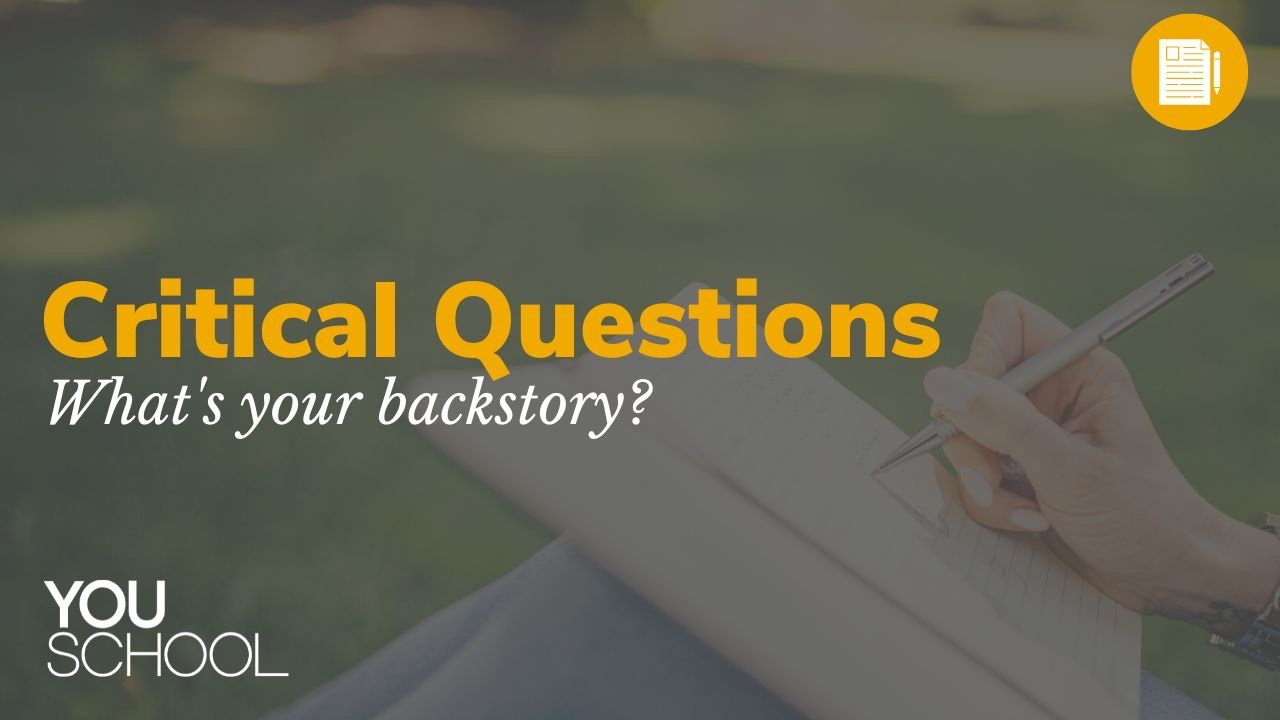Handing over the keys to a kid's future

Winston Churchill said, "The farther back you look, the further ahead you can see."
Most teens don't see very far into the future, though. How could they? They have much more pressing issues in the here and now:
- "Am I wearing the right shirt?"
- "Why hasn't he texted me back?"
- "Did I forget something for Math class?"
The primary task of adolescence is figuring out who they are, but their primary desire is for acceptance. Those can get mixed up, making it tempting to forget who you are and instead pursue a persona that is the least threatening for peer rejection. Too often, a kid carries unresolved questions about themselves well into adulthood, a recipe for poor decision-making and wasted time.
Our current system needs to yield the self-awareness that every kid needs to make the best choices at the optimal time. But, out of our mouths come well-intentioned phrases like, "Don't worry about figuring it all out—just put your head down and do well in school so you can go to a good university."
Unfortunately, most teenagers don't get the opportunity to become self-aware. Their attention is pointed toward achievement, not wisdom.
It’s possible, though. If we want our kids to be best prepared to build and design meaningful lives, it starts with teaching them to reflect on their backstories. As Churchill suggested, they’ll be better equipped to make the right decisions at the right moment if they have the capacity to look backward to understand where they come from and the trajectory of their life already.
How do you help a kid understand their backstory?
- Remind them: whether you’re a teacher, coach, or parent, you’ve had the opportunity to see them over time. Self-awareness starts by reminding them of certain events and experiences they had and then asking them to make meaning out of them.
- Show them: everyone loves a good story, especially kids. Think back on the timeline of your life, and share a specific story from your life and the lessons you took from it. Every time you share a story with them, you’re modeling the importance of self-reflection and what it looks like.
- Prompt interaction: if you have more than one kid, creating a space for them to listen to each other and share is vital. Identity formation is a team sport: the more kids hear each other be reflective, the more apt they’ll be to reflect for themselves.
Understanding where you come from is a critical part of navigating toward a meaningful life. It doesn’t happen overnight or by accident; it requires deliberate effort over time by adults to teach the skill.
P.S. What if there was a way to get the best resources to impact the kids in your life—delivered to you at the right time?
Check out our memberships for parents and educators.

